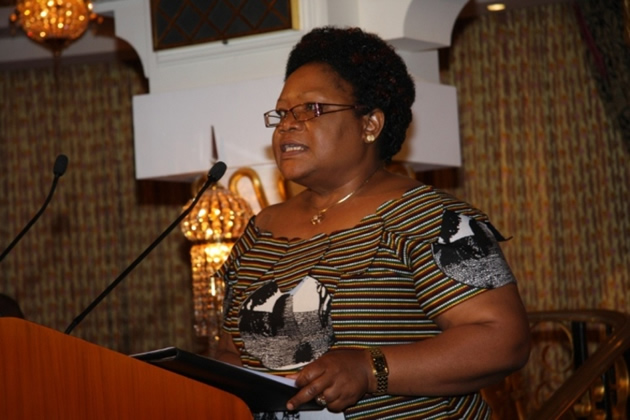US thumbs nose at Africa over indaba

Lloyd Gumbo Senior Reporter
THE United States-organised US-Africa Summit set for August this year in Washington will proceed as planned irrespective of Africa’s position on President Mugabe’s exclusion, US ambassador to Zimbabwe Mr Bruce Wharton has said. President Mugabe, in his capacity as Sadc deputy chair, becomes the bloc’s chairperson when it meets for its 33rd Ordinary Session in Victoria Falls next month, while by virtue of being the African Union’s first vice president, Cde Mugabe is set to assume the continental chair in January next year.
Asked on the rationale of not inviting President Mugabe when he is the deputy chairperson of both sadc and the African Union to the Summit during a luncheon with editors from the private and public media in Harare on Tuesday, Ambassador Wharton was at pains to justify the exclusion saying sadc’s business was sadc’s and US business was the US’.
Ironically, Ambassador Wharton said his country was keen on normalising relations with Zimbabwe yet did not invite President Mugabe to the Summit, a development analysts believe exposes the United States’ hypocrisy on normalising relations between the two countries.
“As you know the deputy chair of sadc (President Mugabe) is on the special designated nationals-the SDN list, the targeted sanctions list,” he said.
“As such, it was the judgment of the White House that it is not appropriate to invite him.”
Mr Wharton revealed that some sadc leaders, whom he was not at liberty to name, were still to confirm their attendance.
Pressed on why his country resolved to disregard the fact that President Mugabe was appointed by his counterparts in the sadc region and the African Union because they saw nothing wrong with him, Ambassador Wharton said: “I am not going to second guess sadc’s decision. I think that sadc matters are sadc business and sadc runs those just as the White House’s decision about who to invite.”
Ambassador Wharton said they expected African Heads of State and Government to attend the Summit even if President Mugabe does not attend.
“To be honest, I don’t think that is going to be an issue. There were questions of concern several months ago, three or four months ago when this all began but to the best of my knowledge participation will be pretty full.
“There are still a few people who haven’t quite decided whether or not they are going to go. But I don’t think there is going to be a big problem. I am aware of two who haven’t decided yet (in sadc),” Ambassador Wharton said. He said Zimbabwe and the United States were rebuilding their bilateral relations after the former held peaceful elections on July 31, 2013.
The US diplomat said the elections had been held in a peaceful environment compared to previous elections though the country was still found wanting on ‘’transparency and credibility’’ which he narrowed down to the issue of the voters roll.
Pressed on why his government had zeroed on Zanu-PF when elections were prepared for under an inclusive arrangement where the MDC-T did not only have a co-Minister in the Home Affairs Ministry that oversaw the Registrar General of Voters’ office, ambassador Wharton could only insist on the necessity of a voters roll for ‘’credible elections’’.
He said there was need for the two countries to open a new page on their relationship and stop demonising each other.
“I think the implications there is that the United States must continually review and revise our approach to Zimbabwe. We can’t allow ourselves to be stuck in the past.
“I think the implications to Zimbabwe is to continually look at revising its policy frameworks. To find policies that work for the people of Zimbabwe. But also attract the sort of foreign investors that I think everyone agrees are welcome and necessary here. And in that regard I think a clear policy framework is critical,” said Ambassador Wharton.
He said Zimbabwe was a powerful country given its intellectual capital and natural resources and the ability of politicians to create policies.
As such, he said the US would want to partner Zimbabwe.
Ambassador Wharton said there were critical sectors that would restore Zimbabwe’s economy among them agriculture, tourism and intellectual capital.
He said Zimbabwe’s future was in the hands of its citizens with its policies being the primary drivers of the future of this country in every sector.







Comments